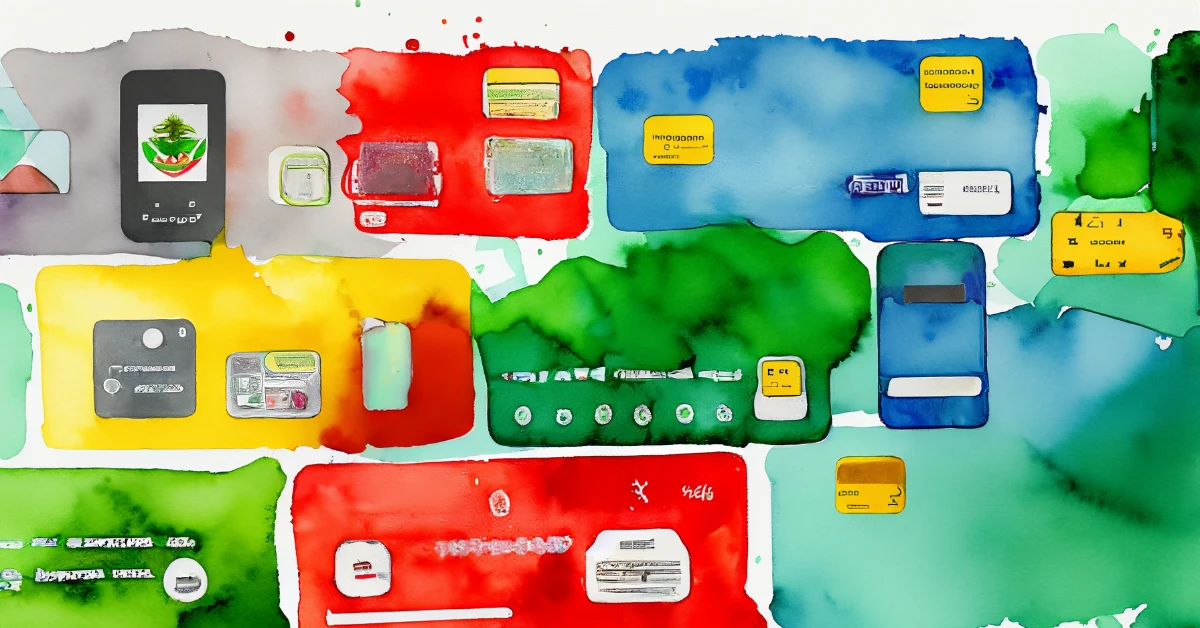eCommerce and Payment Trends in Indonesia - 2024
Despite its physical size, Indonesia has cemented itself as one of the top 10 largest eCommerce markets in the world. The country is experiencing...

Businesses have more options than ever for cross-border payouts. Each option presents unique advantages and challenges. Regional preferences also play a critical role in the selection of payout methods.
From traditional banking transactions to digital wallets to cryptocurrency, recognizing the options is the first step. Understanding why diverse payout options are valuable, where different methods are preferred, and the impact they can have on your business are critically important.
There's a lot here, so let's get started.
What it is: Automated Clearing House (ACH) and wire transfers are electronic payment systems that move funds directly between bank accounts. ACH is generally used for domestic transactions, offering lower fees but slower processing. Wire transfers are faster, can be international, but come with higher costs.
Why is it valuable: ACH and wire transfers are widely used, and preferred, because they are reliable, and they have broad acceptance among global businesses for mass payments, payroll, and large transactions.
Prevalence: ACH is predominantly used in the United States (ACH). Wire transfers are truly global.
Business insight: While cost-effective for large payments, the slower processing time of ACH and higher fees for wire transfers require analysis, specifically determining the balance of cost v. the speed of payments for your business.
What it is: The Single Euro Payments Area (SEPA) enables streamlined bank transfers in Euros, making all transactions across the EU as easy as domestic transactions.
Why is it valuable: SEPA reduces the complexity and costs associated with cross-border payments in the EU. Smooth, fast, and cost-efficient transactions are always sought after.
Prevalence: Within the 36 SEPA countries, including all 27 EU states.
Business insight: SEPA is ideal for businesses issuing payouts throughout Europe. SEPA is efficient and the reduced fees for Euro transactions make it one of the most widely preferred payout methods in the EU.
What it is: Real-Time Payment (RTP) systems provide immediate transfer of funds between banks. This immediate transfer expedites the delivery and availability of funds for recipients, too.
Why is it valuable: RTP supports better cash flow management for businesses and immediate gratification for individuals, crucial in today’s "instant" culture.
Prevalence: Increasingly available worldwide. Significant adoption in countries like the UK, India, and Brazil continue to push the boundaries of what is possible with RTP.
Business insight: Although RTP offers speed, businesses should consider the potential costs and integration requirements. Often, integration requirements are met through third-party partners, not banks. Be sure to investigate what is possible with your bank when considering RTP.
What it is: Mobile or Digital Wallets store payment information on mobile devices, enabling convenient and secure transactions without physical cards or cash.
Why is it valuable: They facilitate microtransactions, peer-to-peer payments, and access to financial services for unbanked or underbanked populations. In countries and markets where mobile connectivity is accessible but banks and other financial services are not, you'll see significant Mobile or Digital Wallet use.
Prevalence: Widely used in Asia (e.g., Alipay in China, Paytm in India). Mobile or Digital Wallets are growing rapidly across the globe, driven by the convenience and flexibility they offer.
Business insight: Mobile or Digital Wallets can dramatically increase transaction speed and convenience. However, they require understanding of regional preferences and partnerships with local providers in order to facilitate payouts.
What it is: Cash Pickup & Delivery enables recipients to collect cash payments from specified locations or have the funds delivered directly to them.
Why is it valuable: Cash Pickup & Delivery provides access to funds for those without bank accounts or in regions where digital payment infrastructure is lacking. Typical Cash Pickup locations include local markets or other storefronts.
Prevalence: Common in many developing countries across Latin America, Africa, and parts of Asia.
Business insight: Essential for reaching unbanked populations and truly working with global talent. However, businesses must consider the security risks and logistical challenges involved.
What it is: Cryptocurrency payouts leverage blockchain technology for decentralized, digital transactions that can cross borders without traditional banking systems.
Why is it valuable: Cryptocurrency payouts offer low transaction fees, privacy, and access to a global market without the constraints of currency exchange or banking infrastructure.
Prevalence: Growing rapidly around the world. The most prevalent use cases are remittances and online transactions.
Business insight: Crypto can open new markets and reduce costs. However, it comes with volatility and regulatory challenges that businesses need to navigate carefully. It is also critical to understand the impact gas fees may have on your transactions as these can negatively impact profitable financial operations in a hurry.
What it is: APMs encompasses a range of non-traditional payment solutions including vouchers, prepaid cards, and local payment apps. These solutions are most often tailored to specific markets or needs.
Why is it valuable: APMs offer flexibility, catering to unique consumer preferences or regulatory environments, removing friction and providing financial services where there are often no other options.
Prevalence: APMs are available everywhere. PayPal, for instance, is an APM. APMs will vary widely by country and market.
Business insight: APMs can fill gaps in your payout strategy. They require thorough market research to ensure relevance and adoption, though, so that your strategy aligns with your payees' preferences.
What it is: Direct card payouts enable businesses to send funds directly to a recipient’s debit or credit card, bypassing traditional bank accounts.
Why is it valuable: Push to Card offers a fast, convenient way for recipients to access funds, often in real-time.
Prevalence: Increasingly common worldwide as most major card networks expand capabilities to this service.
Business insight: Push to card can streamline payouts, especially for gig economy workers and freelancers. However, businesses must be aware of potential fees and card network limitations within various markets.
Understanding and adapting to these payout methods is crucial for businesses aiming to thrive globally. By offering diverse and efficient payout solutions, companies can improve operational efficiency, enhance customer satisfaction, and attract and retain the talent, partners, and suppliers they need to maintain competitive advantage.
If you'd like to learn more about one, or all, of these payout methods, and the impact they can have on your business, let us know!

Despite its physical size, Indonesia has cemented itself as one of the top 10 largest eCommerce markets in the world. The country is experiencing...

We're often asked what payment and payout methods are most preferred in a particular market. As we're focusing on Mexico this week, this is a perfect...

To say the gig economy is dynamic is an understatement. In 2024 the consensus figure is that there will be over 435M gig workers worldwide. Some...